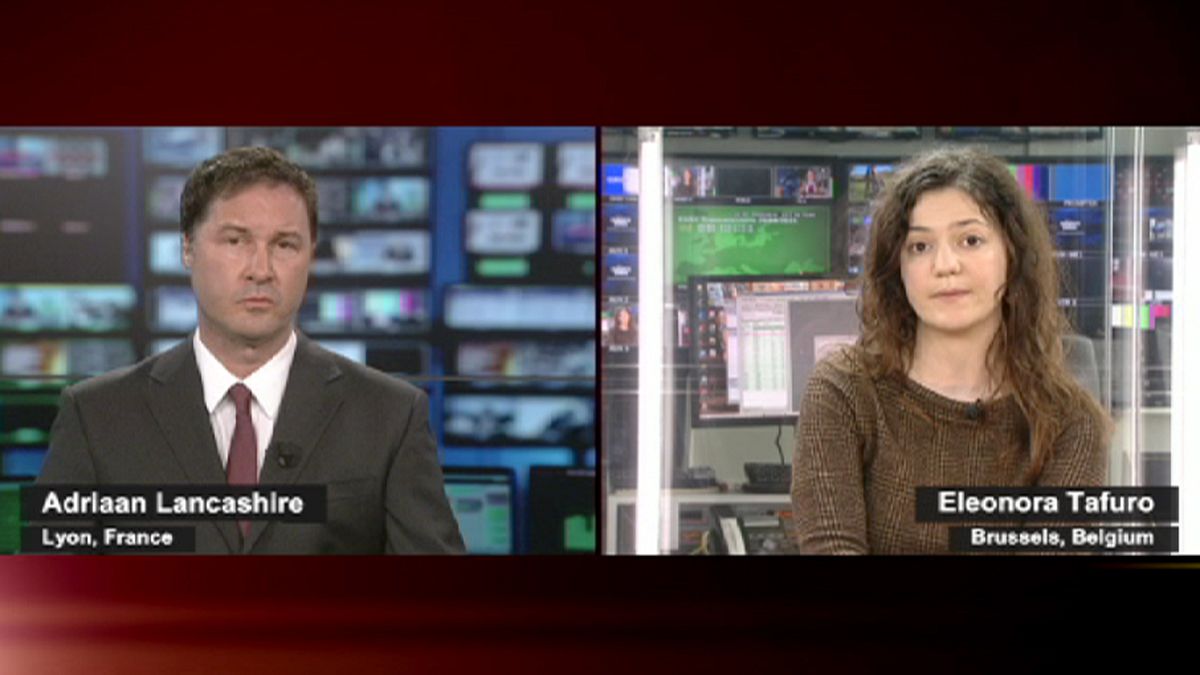American and European diplomatic coordination to resolve the Ukraine crisis is under increasing strain.
Both the US and the EU condemn the Russian erosion of Ukrainian territorial integrity, but the transatlantic sanction paths are branching apart.
Washington’s sanctions appear tougher, targeting seven members of President Putin’s inner circle, and 17 Russian companies, which aim to make it more difficult for them to export.
President Obama said the sanctions were to encourage Moscow to uphold an international agreement aimed at restoring peace in Ukraine.
“The goal here is not to go after Mr. Putin personally. The goal is to change his calculus with respect to how the current actions that he’s engaging in Ukraine could have an adverse impact on the Russian economy over the long haul.”
President Putin’s response was forthright: “The means employed are not appropriate. In any case, we will move ahead and find alternatives. We will survive and our partners (he delivered this with irony) will fail.”
Meanwhile, in Brussels, the ambassadors of the 28 EU countries were meeting to develop new sanctions — the foreign ministers keeping out of sight. As far as appearances went, their discretion meant this wasn’t a political meeting.
The US is seen as having more manoeuvring room, the EU as scrambling for more.
The spokesperson for the European Commission, Pia Ahrenkilde Hansen, said: “We consider that the current supplementary measures are at the appropriate level for the time being, in parallel with preparing phase three measures.”
Phase three calls for courage, since so many EU states rely on Russia for natural gas supplies, six of them almost completely, seven of them very substantially. Even Germany imports more than one third of the gas it needs from Russia.
These countries are sanction-averse, and common foreign policy decisions in the EU bloc require all the members to approve before they can be implemented.
For its part, Russia would not be happy to lose its EU customers; they buy 70 percent of its annual gas exports.
Euronews spoke to Eleonora Tafuro, researcher at the Foundation for International Relations and Foreign Dialogue, based in Madrid.
Adriaan Lancashire, Euronews :
In the West’s standoff with Russia over Ukraine, what effects are the latest sanctions expected to have and how fast?
Eleonora Tafuro :
The short term effect on the Russian economy is going to be of course bad, because it causes the further international isolation for these companies, but it’s not going to be as tough as desired, because the main, the most important companies like Rosneft, the famous oil company, or the biggest banks, are not affected by the sanctions.
Adriaan Lancashire, Euronews :
Why delay economic sanctions, who is setting the speed on this ?
Eleonora Tafuro :
For the European Union, we have to bear in mind that they are so many divisions among member states. There are some states like Bulgaria who are more, who claim that we should understand more Russia, and others like Poland who advocate for a tougher position. So in the case of the European Union, the speed, or the slowness of the sanctions is also due to the profound difference of interests among member states.
Adriaan Lancashire, Euronews :
Can you tell us more about what ‘s behind targeting individuals: energy, banking, government, and army sector individuals in Russia ?
Eleonora Tafuro :
The individuals that have been chosen in the case of Russia are key individuals like Igor Sechin, who is a close adviser of president Putin, and also the CEO of Rosneft, who is of course one of the biggest oil companies in Russia. So the main logic behind these targeted sanctions is to affect directly the individuals who have a role, who play a role not only in this crisis, but in general in Russian politics.
